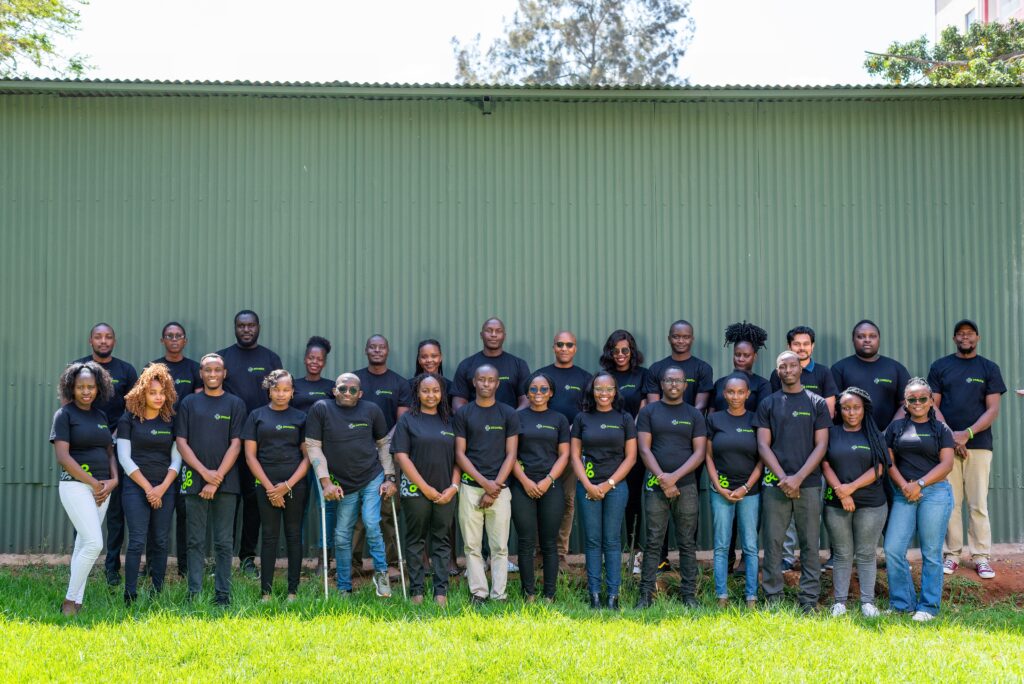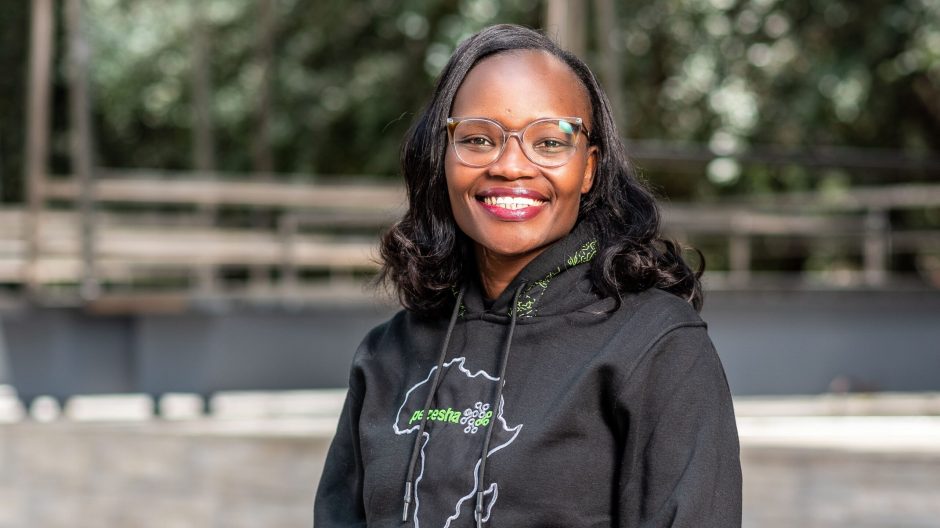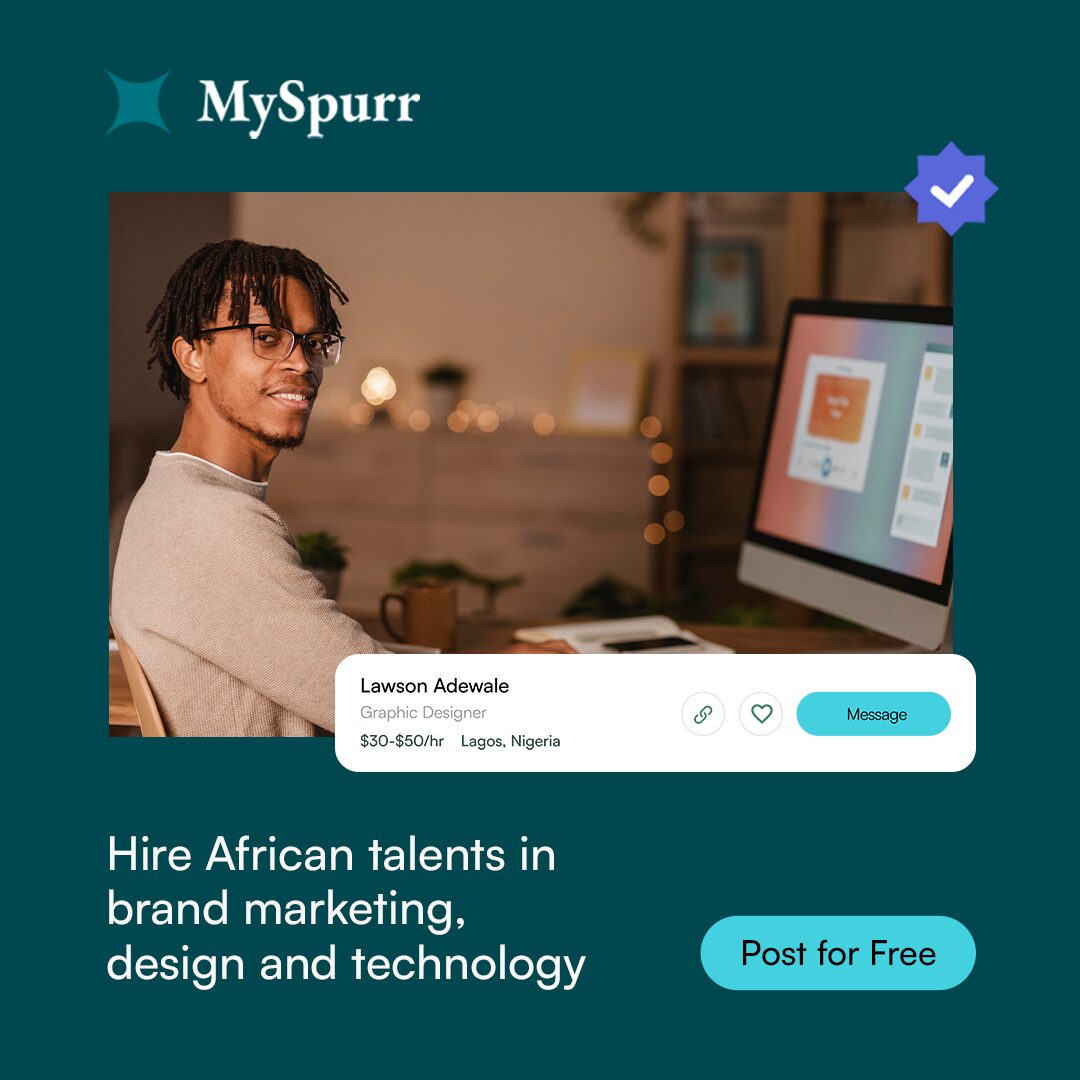History often doesn’t set out to be made. When we look at the lives of trailblazers like Nelson Mandela, Mother Teresa, JD Rockefeller, and Steve Jobs, it becomes clear that their achievements weren’t the focus of their efforts; their actions were driven by a genuine desire to make the world better. History-making, in most cases, is simply an outcome of that passion for purpose.
In Africa today, women like Hilda Moraa are quietly but powerfully reshaping this narrative. Hilda, the founder of Pezesha, is leading a tech startup on a mission to bridge the massive $330 billion financing gap for small and medium-sized enterprises (SMEs) across Africa. By making it easier for these businesses to access capital, Hilda is helping fuel the entrepreneurial dreams of millions, especially in an economy where the next two decades will see over a billion young Africans entering the workforce.
Founder Africa (FA) recently had the opportunity to sit down with Hilda to discuss her vision, challenges, and thoughts on the role of women in tech. We dove deep into subjects like the rise of embedded finance, which is crucial for MSMEs’ survival, the role of women in fintech, and the obstacles she faces in scaling her startup.
Women in Fintech
Hilda is no stranger to the gender imbalance in tech. From Silicon Valley to Nairobi and Lagos, the disparity between opportunities for men and women is glaring. But Hilda Moraa doesn’t just see this as a challenge – she sees it as an opportunity. She shares:
In her opinion:
“Evidently, gender inequality in tech is both an African and a global imbalance. However, I see it as an opportunity. The opportunity arises when we solve for these inequalities then they will bring possibilities for young people and the future of Africa. Let us make no mistake – to fully achieve meaningful financial inclusion we must close all existing gender gaps.
Women in Africa traditionally are worse off when it comes to access to education generally, and even more so when it comes to STEM Education. There is a need for more opportunities to develop technical skills to help boost the numbers.
There is also a huge VC funding gap where women are not supported enough at the earliest stages when building a startup. Historically, less than 5% of VC funding is going to female founder-led startups in Africa. The disparity in women’s access continues to widen in the current economic recession. There needs to be a more deliberate effort for Angel Investors to back women at the seed and early stage and join early on to provide strategic value that helps them to grow to be able to attract growth stage funding.
Gender imbalance is a big problem but at the same time, a big opportunity, and I like to think of how best to tap into that opportunity. If we can effectively communicate the real benefits of gender balance in the tech industry, then there will be an increasing demand for women and naturally, equity could be attained. For example, in Pezesha we are 60% women in our team and we are deliberate about that as we have continued to see the benefits of the diversity of perspectives in the design of our products and embedded finance approach”. This is particularly important for us as a Fintech, to blend perspectives and broaden our views on how we approach financial inclusion.
EMBEDDED FINANCE
As earlier mentioned, Hilda Moraa’s (and Pezesha’s) vision is a world where over 1 billion African youth of workable ages have access to Jobs and one way of doing this is to help MSMEs grow. In Africa today unemployment is a big challenge as there is a lot more supply for the very limited number of jobs. It is common knowledge that MSMEs are the biggest contributors to employment in developing and emerging economies (which Africa has a fair number of). It is also common knowledge that these MSMEs lack the necessary access to debt capital that is needed to help them succeed, mainly because many traditional banks consider them too risky to lend to. To ensure productive and responsible lending, Pezesha has enabled Embedded finance to small businesses across value chains to access working capital for their businesses in a scalable and seamless manner. Pezesha is leading the way when it comes to embedded finance in Africa with more than 20+ value chain partners leveraging their lending infrastructure- credit scoring models to offer financial services to their customers.
As you would expect Hilda Moraa is very excited, more so passionate, about embedded finance. You can tell in her voice that she is totally convinced that embedded finance does not only boost MSMEs growth but it’s the future.
She explains:
“Embedded Finance in layman’s terms is the ability to combine financial services and non-financial services, seamlessly for a customer. One type of embedded finance is embedded lending, which Pezesha provides a platform for, which enables MSMEs to access a loan as part of a purchase transaction – seamlessly. For example, an MSME (A), as part of a transaction to buy goods from a supplier (B), could access credit from a third-party lender (C). For this to happen there needs to be a core technology engine that can allow the necessary interactions between the different workflows of these three businesses, effectively and efficiently. This core technology takes time, skill, effort, and experience to build.
Pezesha has spent years building this core technology and today we are the top providers of embedded lending in Kenya, and we are quickly expanding into other African countries.
We have built the rails for productive lending and now anyone looking to embed credit in their business just needs to hop on. Supply Chains, cooperatives, payroll software providers, e-commerce marketplaces, etc can use our lending infrastructure to offer working capital to their customers in an effective and affordable way.”
One of the unique things about Pezesha platform is that it is a win for all stakeholders in its value chain – through one platform, MSME’s can gain access to credit, suppliers could increase their sales and lenders could source creditworthy customers who they are not able to reach.
According to Hilda Moraa, Pezesha is really on a mission to break the barriers of bias when it comes to lending to MSMEs in Africa.
STARTUP CHALLENGES IN AFRICA
A noble mission indeed but also a challenging one. FA asked Hilda what challenges she has faced in building a FinTech platform in multiple African countries. In her response, she puts the key challenges into three broad categories but not before she highlights the opportunities that currently exist on the continent. She says: “a whole lot has been invested in the ecosystem over the last five years or so, with billions of USD$ poured into the tech ecosystem. – most of which has gone to Fintech startups. This should be acknowledged and celebrated.”
However, Hilda feels more could be done to help increase the talent pool within the ecosystems – she is very much aware that startups face stiff competition with international companies who are looking more to Africa for technology talent – this is making it more difficult for startups to find the talent needed to grow their businesses.
The second challenge is around funding. While a lot of funding is coming into Africa it is mostly in the hands of VC funds generally focus on supporting startups that have attained some sort of product market fit. This means that the very early-stage startups depend more and more on Angel Investors but the trend in Africa is that these Angel Investors have the very little risk appetite and would rather invest in growth startups instead. Hilda believes that Angel Investors need to be better educated on how to find, fund, and follow startups that are in the conception or MVP stages. She also thinks that Angel Investors need to become more active in providing support to these founders and help them bridge the funding gap in later rounds.
The third challenge Hilda Moraa sees is around corporate governance and regulatory compliance. At the moment, it is very difficult for a founder to juggle growing a startup while trying to ensure the necessary corporate governance and regulatory controls are also in place. Hilda believes more needs to be done to help startups take advantage of the benefits from good corporate governance and regulatory requirements by developing programs that are startup friendly and help founders to grow at pace but in a way that protects its shareholders and customers.
In summary, Hilda Moraa believes that while a lot of positive things are going on in the continent, a lot of founders are still faced with the issues of acquiring talent, accessing funding, and meeting corporate governance and regulatory requirements.

WRAPUP
Hilda Moraa is a very passionate founder, and we could talk for hours about the good, bad, and ugly of building a pan-African FinTech startup. But our time was fast spent, and we were forced to wrap things up in the usual FA style – getting personal!
We asked Hilda the following personal questions which we believe have some insightful nuggets that could help any budding founder out there.
FA: What has been the most satisfying moment of your career so far?
HM: Seeing our lending infrastructure scale profitably is really the most satisfying thing for me right now. Seeing the number of businesses that can increase sales and revenue because they now have access to seamless working capital is very rewarding. Seeing the lives of merchants improve because they can now earn more by creating a network effect that drives prosperity.
FA: Who is the biggest female influence in your life?
HM: Wow! – tough one but I love to see entrepreneurs building hard things and that inspires me. Obviously, there are a lot of women out there that continue to inspire me in many ways both professionally and personally, but the most inspirational one for me is Maggie Lena Walker, who set a legacy as the first black woman to own a bank in the United States. Her bank became a catalyst for economic advancement in the Black community. Closer to home, I am inspired by Nthabeleng Likotsi, the first woman and youngest in the world to establish a Mutual Bank that promotes inclusive development and growth in the country and across the continent. These women broke the glass ceiling of their visions and that will be a generational legacy.
FA: Would you say you have a healthy work-life balance?
HM: Achieving this balance is hard but very essential. Making sure that there is a state of equilibrium in work-life integration has been a work in progress for me considering my passion and purpose are integrated into what I do. I have continued to be intentional about prioritizing my mental health and self-care.
FA: What advice would you give your younger self?
HM: If you learn from your past mistakes and failures they are an investment in your future successes.
ALSO READ:
Marketforce: How Tesh Mbaabu Is Causing A Revolution Within The Retail Distribution Space




